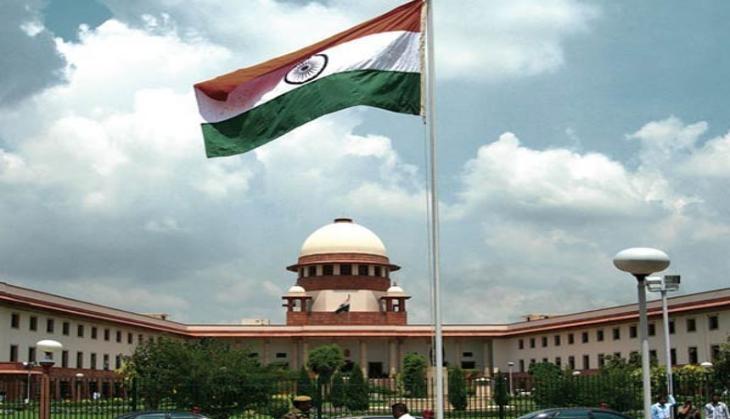[ad_1]

Supreme Court of India: Whether a General Interest Ouster Clause also bars an Arbitrator to Award Pendente-lite Interest?
In a recent judgment of M/S Ferro Concrete Construction (India) Pvt. Ltd. v The State of Rajasthan 2025 INSC 429, the Supreme Court of India decided the issue of whether the contractual Clause that bars the Contractor from claiming any interest on any payment, arrears or balance due to it amounts to an express bar on the Arbitrator’s power to grant pendente lite interest as per the law under the Arbitration Act,1940 (the Old Arbitration Statute, ‘1940 Act’).
Factual Matrix
The Contractor was awarded a works contract by the Employer, and the parties entered into an agreement that contained a Clause barring the Contractor from claiming interest on any payment or arrears or balance due to him at any time. Clause 22 of works contract stated that “the Contractor shall not be entitled to claim any interest upon any payment, any arrears or upon any balance, which may be found due to him at any time.”
When disputes arose under the contract, the Contractor invoked arbitration and filed its claim, resulting in arbitral award in its favour. The Arbitrator also directed payment of 15% interest p.a. on all dues payable from the date when the Arbitrator entered reference till payment or the date of decree, whichever is earlier.
The Employer filed an application to set aside the award, which was decided by the District Judge who set aside the interest awarded by the Arbitrator, and instead granted 9% simple interest on the principal sum from that date till the date of payment. It was held that the Arbitrator did not consider that Clause 22 of the contract is widely worded and prohibits the appellant from claiming interest at any time.
Both parties preferred appeals against this order, which were dismissed by the High Court. The decision of the High Court was assailed before the Supreme Court in the present proceedings. The issue to be decided by the Supreme Court was whether Clause 22 amounts to a bar on the Arbitrator from awarding pendente lite interest under the 1940 Act.
Parties Contentions
The Contractor contended that Clause 22 does not clearly and expressly bar the Arbitrator from awarding interest on the arbitral sum. The Employer argued that under the 1940 Act as well as the new Act i.e. the Arbitration & Conciliation Act, 1996 (‘1996 Act’), the Arbitrator can award interest unless the agreement provides otherwise. On the strength of earlier precedents, the Employer further contended that the narrower contractual Clauses have been treated as ouster Clauses that bar the Arbitrator from awarding pendente-lite interest.
Decision of the Supreme Court
The Supreme Court held as under:-
- The position of law on the grant of interest under the 1940 Act and the 1996 Act is well-settled. The Constitution bench decisions of the Supreme Court in Secretary, Irrigation Department, Government of Orissa v. G.C. Roy, (1992) 1 SCC 508 and Executive Engineer, Dhenkanal Minor Irrigation Division v. N.C. Budharaj, (2001) 2 SCC 721 recognised the Arbitrator’s power to grant pre-reference, pendente lite, and post-award interest on an arbitral award made under the 1940 Act unless there is a contractual bar.
- A contractual clause which bars the payment of interest is interpreted differently under the 1940 Act and the 1996 Act.
- While deciding cases under the 1996 Act, the Supreme Court has been slow to rely on the principles laid down under the 1940 Act, considering the legislative incorporation of the Arbitrator’s power to grant interest through Section 31(7) of the 1996 Act.
- Under the 1940 Act, an Arbitrator has power to grant pre-reference interest under the Interest Act, 1978 as well as pendente lite and future interest. However, he is constricted only by the fact that an agreement between the parties may contain an express bar to the award of pre-reference and/or pendente lite interest. (Reliance Cellulose Products Ltd Vs Oil and Natural Gas Corporation Limited (2018) 9 SCC 266)
- Under the 1940 Act, unless there is a clear and express bar to the payment of interest that can be awarded by an Arbitrator, clauses which do not refer to claims before the Arbitrators or disputes between parties and clearly bar payment of interest, cannot stand in the way of an Arbitrator awarding pre-reference or pendente lite interest. (Reliance Cellulose (supra))
- Thus, under 1940 Act, unless a Contractor agrees that no claim for interest will either be entertained or payable by the other party owing to dispute, difference, or misunderstandings between the parties or in respect of delay on the part of the engineer or in any other respect whatsoever, leading the Court to find an express bar against payment of interest, a clause which merely states that no interest will be payable upon amounts payable to the Contractor under the contract would not be sufficient to bar an Arbitrator from awarding pendente lite interest under the 1940 Act. (Reliance Cellulose (supra))
- The position under Section 31(7) of the 1996 Act, is wholly different, inasmuch as Section 31(7) of the 1996 Act sanctifies agreements between the parties and states that the moment the agreement says otherwise, no interest becomes payable right from the date of the cause of action until the award is delivered. (Reliance Cellulose (supra)).
- Thus, in summary, under the 1940 Act, a stricter approach is followed that requires a clear and express Clause against the payment of interest in case of difference, dispute, or misunderstanding, in case of delay of payment, or any other case whatsoever, to constitute a bar on the Arbitrator from granting interest. A clause that only provides that interest shall not be granted on amounts payable under the contract would not be sufficient. On the other hand, under the 1996 Act wherein Section 31(7)(a) sanctifies party autonomy, interest is not payable the moment the contract provides otherwise.
- The Arbitrator’s power to grant interest would depend on the contractual clause in each case, and whether it expressly takes away the Arbitrator’s power to grant pendente lite interest. This would have to be determined based on the phraseology of the agreement, Clauses conferring powers relating to arbitration, the nature of claim and dispute referred to the Arbitrator, and on what items the power to award interest is contractually barred and for which period. Further, a bar on award of interest for delayed payment would not be readily inferred as an express bar to the award of pendente lite interest by the Arbitrator.
- Applying the above position of law on the facts of the case, the Supreme Court noted that Clause 22 prohibits the Contractor from claiming interest on any payment, arrears or balance, which may be found due to him at any time. Therefore, it is held that this Clause does not expressly bar the award of pendente lite interest in the event of disputes, differences, or misunderstandings between the parties, or on delayed payment, or in any other respect whatsoever. Under the 1940 Act, since the Supreme Court on earlier occasions has not readily inferred a bar on the Arbitrator from Clauses that merely bar the Contractor from claiming interest, and the Court held that the same will apply to this case as well.
Accordingly, the Supreme Court set aside the decision of the High Court. However, considering that the Arbitrator entered reference in 1991 and the award was made in 1995, along with the passage of time in litigation as well as the amounts already paid by the Employer including post-award interest @9%, the Court deemed it appropriate to grant 9% pendente lite interest, instead of 15% as granted by the arbitral tribunal, from date of reference till the date of the arbitral award within a period of 60 days.
[ad_2]
Source link

